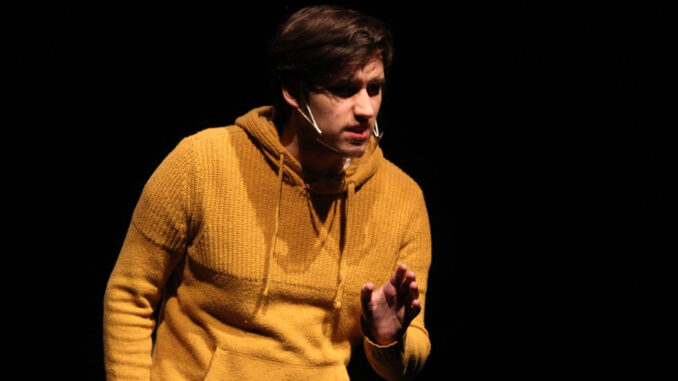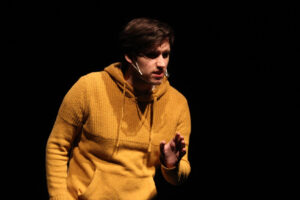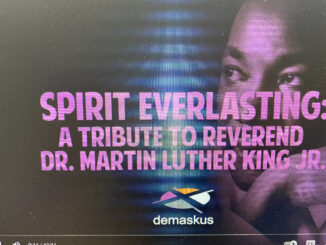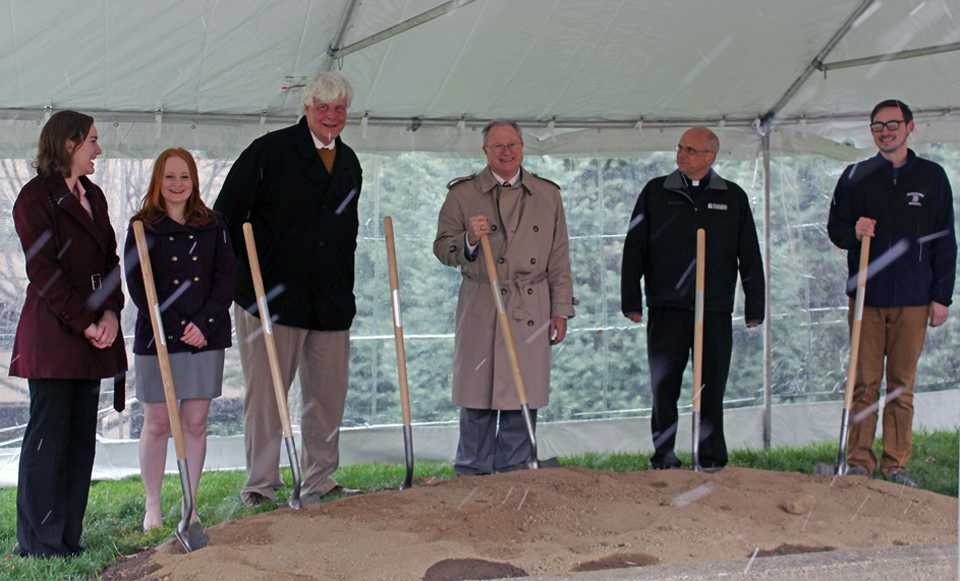
Capri Scarcelli | a&e editor
3/25/21

Live theatre is back, and Duquesne’s Red Masquers couldn’t be more excited.
From March 18-20 at 8 p.m., the theatre group performed The Pittsburgh Monologue Project — a show inspired by true events, told by select residents of Pittsburgh. This show was a long-lasting tradition when technical director Justin Sines was in his undergrad from 2007-2011, occurring once a semester.
According to Sines, this production was written by Duquesne theatre arts professor Robert Isenburg and Brad Keller, who sought to delve into the city’s unique culture by interviewing Pittsburgh locals at random, jotting down what they liked to put together a story piece by piece.
The show is broken up into individual monologues, rotating through each seamlessly. In the midst of a pandemic, Sines said this was the best way to “get theatre back out into the world.”
“We’ve wanted to do [the show again] for so many years, so it took that last push to be like ‘yes, now is the time to do it,’” Sines said. “We finally dove right in, so I asked [Isenburg and Keller] for their top 10 favorite monologues they’ve written over the years, so it was the best of The Pittsburgh Monologue Project.”
To maintain social-distancing, “traffic patterns” were put in place to safely maneuver actors on and off the stage in between monologues, while also spreading out in areas backstage and in the main lobby to keep that distance. According to Sines, actors were also provided clear, plastic masks that functionally rested on their chins.
With only one or two actors on the stage at a time, Sines said that the production process was an adjustment for the performers who were not having the typical comradery of a rehearsal — they didn’t come together as a cast until a week before the show.
“Theatre is a collaborative art,” Sines said. “The process is a little different when you’re not working with your fellow actors but still trying to make a cohesive production.”
Junior education major and actor Jarrett Klunk agreed with this, saying that despite the struggle of adapting to this new way of theatre, “we can still create a sense of community.”
“There isn’t as much interaction [on stage], so it’s more of a personal development while putting thought into the character,” Klunk said. “The masks did make it harder to convey emotion.”
The performance allowed limited in-person seating, with chairs strategically spaced throughout the auditorium; otherwise, the full production was recorded and streamed through the Red Masquers Facebook page, according to Sines.
Red Masquers president Heather Umbel, a senior theatre arts major, said that this virtual option allowed a new way for alumni, friends and family to enjoy Red Masquers’ performances from afar.
“In the theatre, we’ve had to adapt in ways we are not used to,” Umbel said. “We may prefer not doing shows over Zoom, and we might prefer being in the theatre, but I think the biggest thing we can take away from this experience is how many people we really reach doing shows with a virtual aspect. I hope that they continue to stream shows in the future because it’s really incredible that [people who can’t make it] can open up the computer and be there with us.”
Rehearsals fluctuated between online and in-person, but were still three days a week, with each actor rehearsing their monologue once a week for 20 minutes at a time, giving them three times to rehearse before dress rehearsals and tech week. Not to mention, COVID testing was still taking place in Genesius Theater, though the testing administrators were “very understanding,” Sines said.
“[The actors] did it, they managed to memorize [the show] and make all those changes on their own and come to rehearsal ready to ask questions. I was impressed with them,” Umbel said.
There is still much to look forward to from the Red Masquers this semester. Coming up are the Premier performances: the longest running, student-produced, one-act festivals in Eastern U.S.
“Every year, we have had students write, direct, stage and act in these student-run shows,” Sines said. “I come in just to go ‘this looks great,’ and to make sure the audience has everything they need.”
Sophomore political science major Riley Moore, an actor from The Pittsburgh Monologue Project, said that this is “just the beginning” for the Red Masquers’ return to a new normalcy.
“As long as theatre is still around, so are we,” Moore said.
The Premier shows will occur from April 28 – May 1. Those interested in submitting a script can do so at duqredmasquers.com.
Editors Note: The Duquesne Duke Managing Editor Colleen Hammond directed The Pittsburgh Monologue Project.




